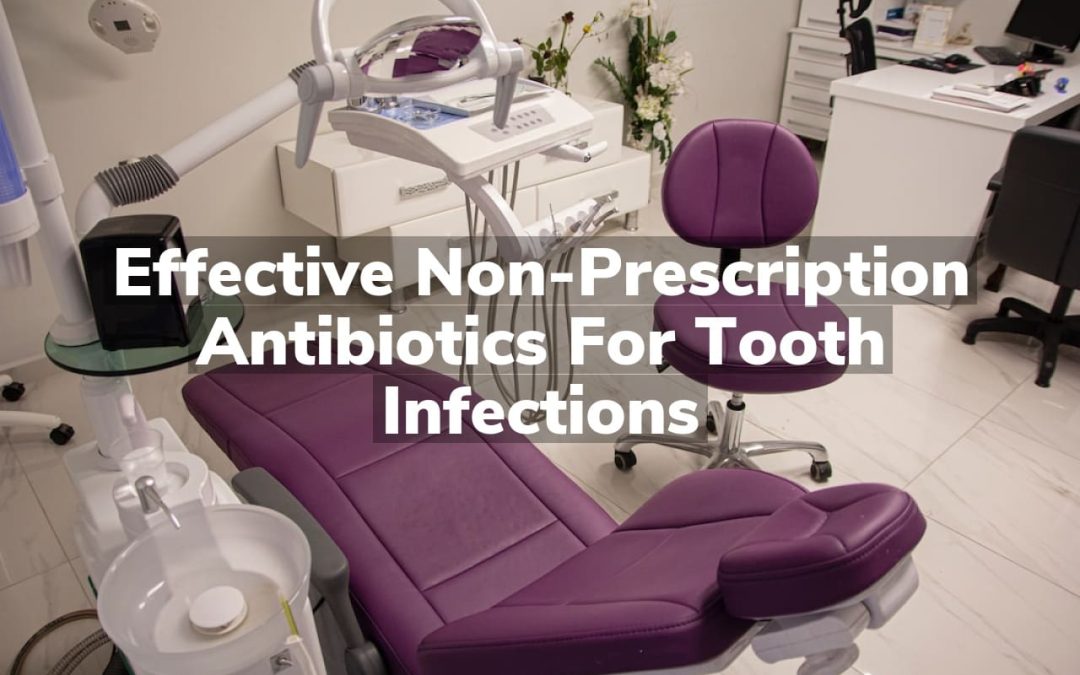Are you searching for effective non-prescription antibiotics to combat a troublesome tooth infection? At Comprehensive Dental Care, we understand the urgency of relief, and we’re here to guide you through safe, over-the-counter options that can help manage your symptoms until you can see a professional.
Natural Antibacterial Agents for Dental Health
When dealing with tooth infections, many individuals seek out non-prescription alternatives that can help alleviate pain and fight bacteria. Natural antibacterial agents have been used for centuries to promote dental health and can be effective adjuncts to oral hygiene practices. Ingredients such as clove oil, known for its eugenol content, have been recognized for their analgesic and antiseptic properties, making them a popular choice for temporary relief of toothache. Similarly, raw garlic, with its potent allicin compound, can act as a natural antibiotic, potentially reducing bacteria and providing temporary relief from discomfort. While these natural solutions can be beneficial, they are not a substitute for professional dental care and should be used in conjunction with proper oral hygiene.
It’s important to note that while natural remedies can help manage symptoms, they are not a cure for serious dental issues that may require professional intervention. For instance, if you’re facing a situation where you need to Rapidly Complete 4 Root Canals in a Single Day: Expert Insights can be invaluable. Such expert guidance can help you understand the necessity of timely and effective treatment, which natural remedies alone cannot provide. Always consult with a dentist to determine the best course of action for your dental health, especially when dealing with severe infections that could lead to more serious complications if left untreated.
Over-the-Counter Options for Toothache Relief
When dealing with the discomfort of a tooth infection, finding immediate relief is a top priority. Over-the-counter (OTC) pain relievers can be effective in managing the pain associated with tooth infections. Ibuprofen (Advil, Motrin) and acetaminophen (Tylenol) are commonly used to reduce inflammation and alleviate pain. Additionally, OTC oral anesthetics containing benzocaine, such as Orajel, can be applied directly to the affected tooth and gum to numb the area temporarily. While these options can provide short-term relief, they do not treat the underlying infection, so it’s crucial to follow up with a dental professional for appropriate care.
It’s important to remember that while OTC medications can help manage pain, they are not a substitute for professional dental treatment. Persistent or severe tooth pain should be evaluated by a dentist to determine the cause and receive proper treatment to prevent further complications. If you suspect that your toothache may require more than just OTC remedies, consider reaching out to Local Root Canal Experts, Crown Point for specialized care and advice on the best course of action for your dental health.
Herbal Remedies Targeting Oral Bacteria
When battling tooth infections without a prescription, many individuals turn to herbal remedies known for their antibacterial properties. Natural substances such as garlic, which contains allicin, and clove oil, rich in eugenol, have been traditionally used to combat oral bacteria and alleviate toothache. Additionally, turmeric with its active compound curcumin, and goldenseal featuring berberine, are praised for their anti-inflammatory and antimicrobial effects that can help in reducing dental discomfort and preventing the spread of infection. While these herbal solutions can provide temporary relief and support oral health, it’s crucial to consult with a healthcare professional for proper diagnosis and treatment to avoid complications associated with tooth infections.
Essential Oils for Tooth Infection Management
When battling a tooth infection, essential oils may serve as a supplementary non-prescription approach to help manage symptoms and promote healing. Renowned for their natural antibacterial and anti-inflammatory properties, essential oils such as clove, tea tree, peppermint, and thyme can be diluted and applied topically to the affected area to potentially alleviate pain and inhibit bacterial growth. While not a replacement for professional dental care, incorporating these oils into your oral hygiene routine could provide some relief and support overall oral health. Always consult with a healthcare professional before using essential oils, especially if you have underlying health conditions or are pregnant.
Saltwater Rinses: Simple and Effective
When battling a tooth infection, non-prescription solutions can be surprisingly effective, and saltwater rinses are a prime example. This age-old remedy harnesses the antiseptic and anti-inflammatory properties of salt to reduce bacterial growth and alleviate pain. By simply mixing half a teaspoon of salt into a cup of warm water and swishing it around your mouth for a few seconds, you create a hostile environment for bacteria, promoting oral health. Regular saltwater rinses can complement your dental hygiene routine, offering a cost-effective and readily available method to manage minor tooth infections until professional dental care is obtained.
Conclusion
For expert care that ensures your comfort and rapid treatment, call Comprehensive Dental Care at 219-663-1207 or read our reviews on Google Maps.
